5. 1967
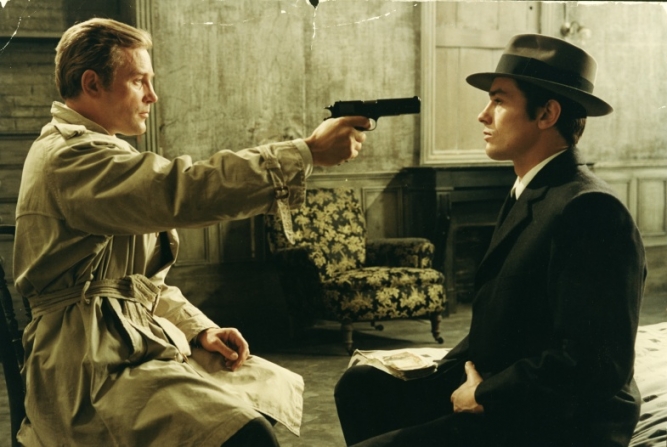
The Top 10
1. Playtime, directed by Jacques Tati
2. Belle de Jour, directed by Luis Buñuel
3. War and Peace, directed by Sergei Bondarchuk
4. Le Samouraï, directed by Jean-Pierre Melville
5. Bonnie and Clyde, directed by Arthur Penn
6. The Young Girls of Rochefort, directed by Jacques Demy
7. Marketa Lazarová, directed by Frantisek Vlácil
8. Accident, directed by Joseph Losey
9. Hour of the Wolf, directed by Ingmar Bergman
10. In Cold Blood, directed by Richard Brooks
The Big Winners of 1967:
Oscar for Best Picture- In the Heat of the Night (directed by Norman Jewison); Palme d’Or- Blowup (directed by Michelangelo Antonioni); Golden Lion- Belle de Jour; Golden Bear- The Departure (directed by Jerzy Skolimowski)
1967 had one of the most stellar and consistent outputs of any year in film history. Some of the best French films from the 1960s (Playtime, Belle de Jour, Le Samouraï, and The Young Girls of Rochefort) came from 1967. Perhaps Ingmar Bergman’s most underappreciated work, Hour of the Wolf, was released in 1967. Bonnie and Clyde, one of the most iconic Hollywood films and one of the most important films of the New Hollywood film movement was also released in 1967.
Other impressive films from 1967 are Don’t Look Back (directed by D.A. Pennebaker), The Graduate (directed by Mike Nichols), Point Blank (directed by John Boorman), Terra em Transe (directed by Glauber Rocha), Titicut Follies (directed by Frederick Wiseman), Wavelength (directed by Michael Snow), and Week-End (directed by Jean-Luc Godard).
4. 1975
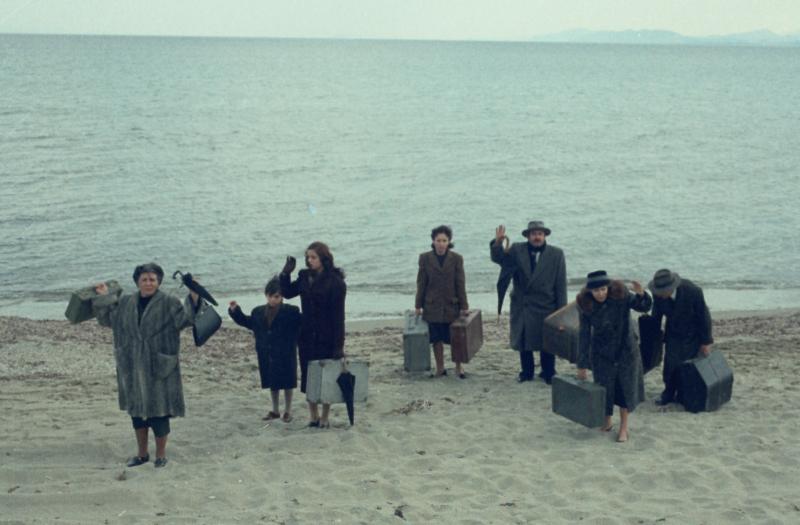
The Top 10
1. Jeanne Dielman, 23 Quai du Commerce, 1080 Bruxelles, directed by Chantal Akerman
2. Jaws, directed by Steven Spielberg
3. The Travelling Players, directed by Theo Angelopoulos
4. Fox and His Friends, directed by Rainer Werner Fassbinder
5. Dersu Uzala, directed by Akira Kurosawa
6. Dog Day Afternoon, directed by Sidney Lumet
7. Picnic at Hanging Rock, directed by Peter Weir
8. Three Days of the Condor, directed by Sydney Pollack
9. The Rocky Horror Picture Show, directed by Jim Sharman
10. One Flew Over the Cuckoo’s Nest, directed by Miloš Forman
The Big Winners of 1975:
Oscar for Best Picture- One Flew Over the Cuckoo’s Nest; Palme d’Or- Chronicle of the Years of Fire (directed by Mohammed Lakhdar-Hamina); Golden Bear- Adoption (directed by Márta Mészáros)
1975 was one of the most prolific years in terms of classics. This year was a high point in many directors’ careers, most notably Steven Spielberg (Jaws), Theo Angelopoulos (The Travelling Players), Rainer Werner Fassbinder (Fox and His Friends), Akira Kurosawa (Dersu Uzala), and Miloš Forman (One Flew Over the Cuckoo’s Nest). It was also the year that Chantal Akerman, one of the cinema’s greatest female directors, made her feminist masterpiece Jeanne Dielman, 23 Quai du Commerce, 1080 Bruxelles.
Other noteworthy films from 1975 include Grey Gardens (directed by Albert Maysles, David Maysles, Ellen Hovde, and Muffie Meyer), The Mirror (directed by Andrei Tarkovsky), Monty Python and the Holy Grail (directed by Terry Gilliam and Terry Jones), Nashville (directed by Robert Altman), The Passenger (directed by Michelangelo Antonioni), and Salò, or the 120 Days of Sodom (directed by Pier Paolo Pasolini).
3. 1939
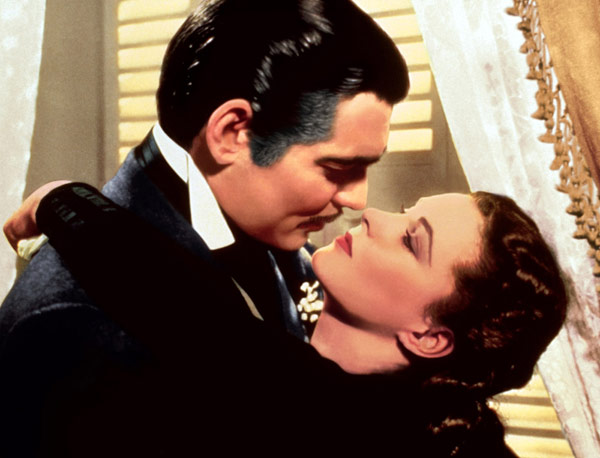
The Top 10
1. Gone with the Wind, directed by Victor Fleming
2. Stagecoach, directed by John Ford
3. The Rules of the Game, directed by Jean Renoir
4. The Wizard of Oz, directed by Victor Fleming
5. Only Angels Have Wings, directed by Howard Hawks
6. The Story of the Last Chrysanthemums, directed by Kenji Mizoguchi
7. Le Jour Se Lève, directed by Marcel Carné
8. Ninotchka, directed by Ernst Lubitsch
9. The Women, directed by George Cukor
10. Wuthering Heights, directed by William Wyler
The Big Winners of 1939:
Oscar for Best Picture- Gone with the Wind; Palme d’Or- Union Pacific (directed by Cecil B. Demille)
1939 was the greatest year for Hollywood. So many classics were released within the calendar year and the set of ten films nominated for Best Picture is the strongest in Oscar history. Superb directors John Ford (Stagecoach) and Ernst Lubitsch (Ninotchka) released their best films in 1939.
Other directors like Howard Hawks (Only Angels Have Wings), George Cukor (The Women), and William Wyler (Wuthering Heights) made films that rank among the very best of their prolific careers. On the international stage, there may not have been a host of excellent pictures made, but there were a few knock-out films. The Rules of the Game is one the absolute best films from genius filmmaker Jean Renoir. The same praise can be given to both The Story of the Last Chrysanthemums and Le Jour Se Lève and their directors Kenji Mizoguchi and Marcel Carné, respectively.
Other 1939 classics include Beau Geste (directed by William Wellman), Gunga Din (directed by George Stevens), Love Affair (directed by Leo McCarey), Midnight (directed by Mitchell Leisen), Mr. Smith Goes to Washington (directed by Frank Capra), My Apprenticeship (directed by Mark Donskoi), The Roaring Twenties (directed by Raoul Walsh), and Young Mr. Lincoln (directed by John Ford).
2. 1974
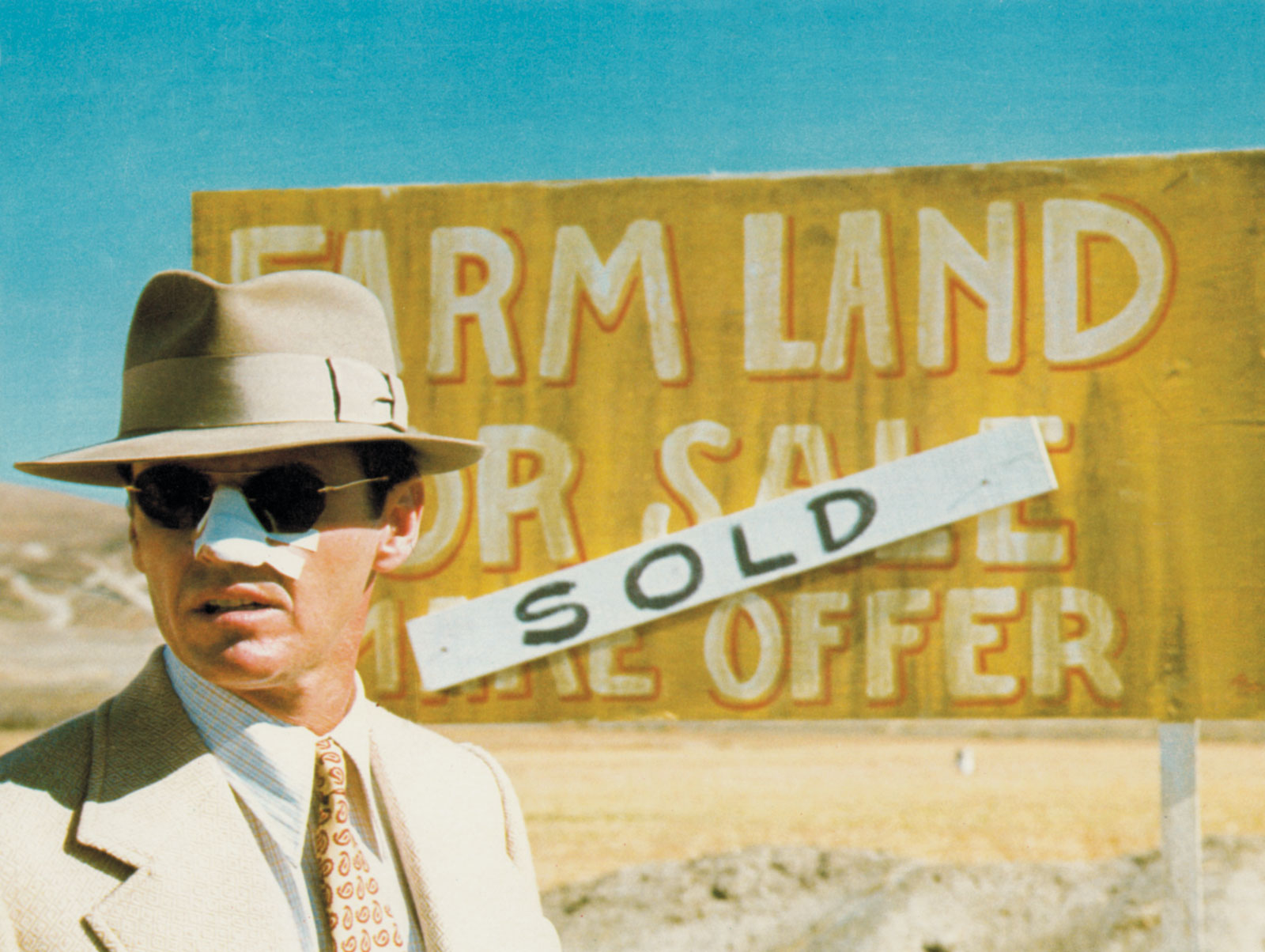
The Top 10
1. Chinatown, directed by Roman Polanski
2. Celine and Julie Go Boating, directed by Jacques Rivette
3. The Enigma of Kaspar Hauser, directed by Werner Herzog
4. The Conversation, directed by Francis Ford Coppola
5. Xala, directed by Ousmane Sembene
6. Ali: Fear Eats the Soul, directed by Rainer Werner Fassbinder
7. Lancelot du Lac, directed by Robert Bresson
8. Alice in the Cities, directed by Wim Wenders
9. Blazing Saddles, directed by Mel Brooks
10. The Godfather Part II, directed by Francis Ford Coppola
The Big Winners of 1974:
Oscar for Best Picture- The Godfather Part II; Palme d’Or- The Conversation; Golden Bear- The Apprenticeship of Duddy Kravitz (directed by Ted Kotcheff)
1974 was a year rife with classic films. In Hollywood, one of the greatest neo-noirs (Chinatown) was made, Francis Ford Coppola was responsible for not one but two of the year’s best and most decorated films (The Conversation and The Godfather Part II), and master comedy actor/director/writer Mel Brooks was at the top of his game, with Blazing Saddles serving as one of his two classic comedies to come from 1974.
The year saw the release of Ousmane Sembene’s Xala, the greatest film to come from the African continent. It was also an important time for West German cinema, with its big three, Werner Herzog (The Enigma of Kaspar Hauser), Rainer Werner Fassbinder (Ali: Fear Eats the Soul), and Wim Wenders (Alice in the Cities), making top notch films.
Along with the listed films, other feats of cinema from 1974 are Bring Me the Head of Alfredo Garcia (directed by Sam Peckinpah), India Song (directed by Marguerite Duras), Lacombe, Lucien (directed by Louis Malle), The Phantom of Liberty (directed by Luis Buñuel), The Texas Chainsaw Massacre (directed by Tobe Hooper), A Woman Under the Influence (directed by John Cassavetes), and Young Frankenstein (directed by Mel Brooks).
1. 1962
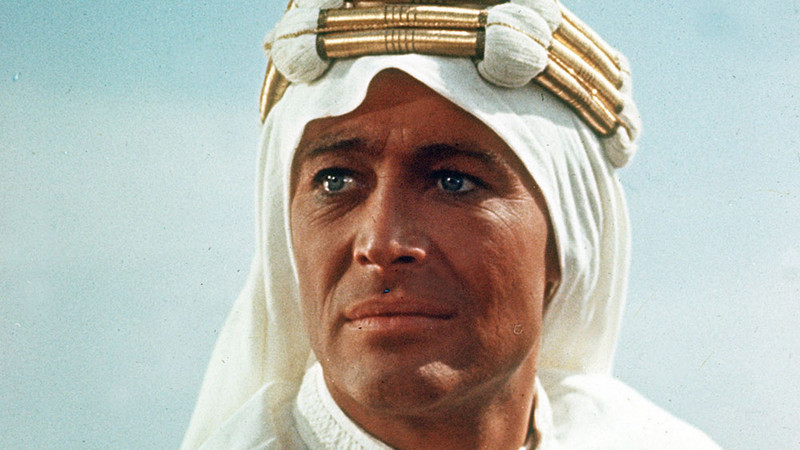
The Top 10
1. The Exterminating Angel, directed by Luis Buñuel
2. Lawrence of Arabia, directed by David Lean
3. Ivan’s Childhood, directed by Andrei Tarkovsky
4. To Kill a Mockingbird, directed by Robert Mulligan
5. Knife in the Water, directed by Roman Polanski
6. The Man Who Shot Liberty Valance, directed by John Ford
7. Le Doulos, directed by Jean-Pierre Melville
8. Through a Glass Darkly, directed by Ingmar Bergman
9. Hatari!, directed by Howard Hawks
10. The Manchurian Candidate, directed by John Frankenheimer
The Big Winners of 1962:
Oscar for Best Picture- Lawrence of Arabia; Palme d’Or- O Pagador de Promessas (directed by Anselmo Duarte); Golden Lion- Family Diary (directed by Valerio Zurlini) and Ivan’s Childhood; Golden Bear- A Kind of Loving (directed by John Schlesinger)
1962 was the greatest year in cinema, benefitting from various events in film. Modern Hollywood had begun to take its shape and, despite Lawrence of Arabia’s dominance at the Oscars, the 35th Academy Awards featured one of the most powerful collection of films in Oscar history. All across Europe, many countries were still enjoying a boom in the quality and popularity of their films, including France, Italy, and the United Kingdom.
1962 was the year that Luis Buñuel (The Exterminating Angel), David Lean (Lawrence of Arabia), Robert Mulligan (To Kill a Mockingbird), and John Frankenheimer (The Manchurian Candidate) all released their best films. 1962 also saw the debut feature-length films from acclaimed and talented directors Andrei Tarkovsky (Ivan’s Childhood) and Roman Polanski (Knife in the Water).
Other successful directors, including John Ford (The Man Who Shot Liberty Valance), Jean-Pierre Melville (Le Doulos), Ingmar Bergman (Through a Glass Darkly), and Howard Hawks (Hatari!), were still at the top of their game and continuing to improve upon their impressive stature as some of film’s finest directors.
Other important classics from the best year in film history include An Autumn Afternoon (directed by Yasujiro Ozu), Divorce Italian Style (directed by Pietro Germi), Harakiri (directed by Masaki Kobayashi), L’Eclisse (directed by Michelangelo Antonioni), Lolita (directed by Stanley Kubrick), The Loneliness of the Long Distance Runner (directed by Tony Richardson), Mamma Roma (directed by Pier Paolo Pasolini), Ride the High Country (directed by Sam Peckinpah), The Trial (directed by Orson Welles), Vivre Sa Vie (directed by Jean-Luc Godard), and Winter Light (directed by Ingmar Bergman).